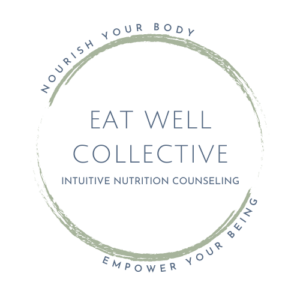
This blog post is part of a new monthly Nutrition Advice Column. Feel free to submit your questions to qu[email protected] or complete the form below.
Question: I’m so burnt out from cooking for my family (husband and two kids). My husband also doesn’t like to cook. But we need to eat and I hate to always rely on eating out. Any tips or suggestions?
Answer:
This is a tough question – many of us feel burnt out from cooking. Our need to eat is persistent and never-ending. I have a toddler and some days it feels like I spend all day making food. And that’s it. It doesn’t feel particularly fulfilling. I may have a day where I feel inspired to make delicious, nourishing food and on those days, I feel like I knocked it out of the park. But then I wake up the next day and we need food at least three times that day AGAIN. And then I lose all desire to be in the kitchen.
Cooking burnout is common.
Many people find cooking to be more of a chore than an enjoyable activity. Even people who like cooking, myself included, can sometimes feel that the relentless nature of making food is burdensome.
For decades (centuries even), women have been in charge of food for the family. In the past few decades, this has shifted a little with an increasing number of men taking on this role in the home, but I have also seen that sometimes this role is abdicated altogether. It seems to me that it is common for men and women to BOTH feel burdened by cooking and NOT want to take charge of it.
There are many reasons for this, but one reason, I believe, may be related to our understanding of time. Cooking feels like one more task in an endless litany of daily tasks. We rush through feeding ourselves and try to squeeze it in between other chores or activities we would rather be doing. In short, we treat eating and food prep like an inconvenience and a necessary evil.
But we need to eat.
This has led to the increase of eating out, meal subscription kits, and convenience foods such as microwave meals, pre-made meals, and salad kits to name a few. These foods ease the burden of cooking, though they may come at a higher cost. While I think that convenience foods, meal subscription kits, and eating out can absolutely be an excellent part of the solution, I do not think this is the entire solution.
In an ideal world, we would all share the responsibility for nourishing ourselves and each other, both in the household and the community.
I’ll use my own household as an example.
My husband and I go through seasons (depending on our jobs and responsibilities) where one of us takes more of a lead in the kitchen. I have found it immensely helpful that we both cook. That means that we are both capable of whipping out a quick meal whenever needed. It also means that when we host or spend a weekend away, we often take turns doing the work of it – the prep, the planning, and the actual cooking – which significantly lightens the load.
Before you roll your eyes, and say “Isn’t that nice for you, my life could never look like that” – I will tell you that it wasn’t always like this for us. We have been married for 18 years and our approach to making food has changed significantly over the years.
Neither of us knew how to cook when we got married.
I had to call my mom to ask how to hard boil an egg. During the first ten years of our marriage, we were pretty traditional – I figured out how to cook and I was in charge of most of our food work – the mental load, the grocery shopping, the prep work and the actual cooking. Even if my husband went away for the weekend with friends, I took care of the food for him. We both worked full-time, but this landed on me, like it does for many women.
So how did we change this?
To put it bluntly – we changed it through a lot of persistence, arguments, and meltdowns from me. It also “helped” that I broke my ankle and tore my ACL one year, so out of necessity, my husband HAD to cook.
We had many conversations over the years about how our current set-up wasn’t working for me – I needed him to pitch in more. And I want to be clear, this was not a simple or fast change – we were battling against deeply ingrained cultural norms and that takes time to change. We had many ongoing discussions about what we needed from each other in the process of changing this in our home.
And I will say, he has thrived in this role and actually enjoys it. I know this won’t be true for all people, but the reality is that eating food is a fundamental part of being human and so is making food. We do each other a disservice when we don’t expect all people to have the capability of basic food prep. I know this is a difficult cultural change, but it is a shift we must make if we care about each other and our well-being.
The community could take more responsibility for food as well.
I read once that women at the end of the 1800’s were advocating for community kitchens – a place where nourishing, delicious meals would be prepared every day for the local community. I love this idea and I think we should revive it. A community kitchen could be a place of connection and sharing the burden of food work – something that our increasingly disconnected world could use.
I realize a community kitchen is a big dream.
In lieu of that, I often think about what might this look like on a smaller scale. It could include weekly meals with one or two friends (where you take turns providing all the food), grandparents/parents providing a weekly meal for young families, or neighbors having each other over routinely. This doesn’t have to be elaborate. In the winter, I often make a pot of soup and then share it. Or we make grilled cheese and a salad. The point is to make food and then share it. It does not have to be extravagant or picture-perfect.
So how do we generate engagement for all people with the relentless chore of cooking?
First, we reframe this idea of the ‘relentless chore of cooking’.
Making food to nourish our bodies is a basic human need. It’s like breathing – no one disputes that you would preferably have the capacity to breathe for yourself as needed. It’s not a perfect analogy and it is a little silly to say, but it does apply to being able to make food. Just like the need to breathe, without food, we die.
Our need for food is a fundamental part of being human.
Food can bring us together and foster connection and relationships. Making and eating food can be a time to pause and take in the moment rather than rushing through it. Our lives are already much too short. When we stop to enjoy food and each other, we make space to be present.
Cooking for yourself and for each other is a useful skill for self-care and connection with others. Making food is a basic act of human love and care. Perhaps shifting this understanding of food and cooking can shift our mindset around it.
Second, start with asking. And setting expectations.
Have a frank conversation with your partner about food work and how you need help. Start with having him or her take charge of it for just one night each week. If you have the funds, purchase a meal subscription kit to help them develop beginner cooking skills.
Do you have a teenager in the home?
Same story. Every person in the home should have the capacity for rudimentary cooking – adults and children. My three-year-old is already helping in the kitchen (unloading the silverware from the dishwasher, stirring the oatmeal, tasting the food we make, helping pour coffee) – it can start early.
Just as we teach our children to brush their own teeth, we must teach them how to make food. We do our children a disservice if we do not have them making food with us regularly. It is how they learn.
What are some other tactics for managing our basic need for nourishment?
- Take turns hosting regular meals with friends and/or family. It doesn’t have to be elaborate, but it does help with the burden.
- Create routines: I eat the same 2-3 things for breakfast every day and I rotate through them. Same thing for lunch although we change it up depending on the leftovers we have on hand. For dinner, we do get a little more creative, but even then, I limit making new recipes to a few times per month, if at all.
- Full disclosure – I do not meal-prep or meal-plan. I never have. (Am I allowed to admit that as a dietitian?) Instead, I find it easier to keep certain staples on hand to make sure I have a few options. Check out my current list of staples below if you want examples.
- If the idea of creating a routine around food sounds boring to you, I would encourage you to ask yourself more questions about that. I have noticed that sometimes food can be a place of misplaced need for excitement. Do not get me wrong – food should be enjoyable, taste good, and can be one of life’s great pleasures. But every meal does not need to be new and exciting, especially if this is hindering you from cooking at all. Sometimes we need to rely on the basics to make the routine and persistence of our need for food more manageable.
- Save new recipes or elaborate meals for no more than once per week. Maybe even once per month depending on your energy level. New recipes and elaborate meals can create burnout unless this is your passion.
- Convenience foods: Have a few favorite convenience meals on hand such as turkey burgers, sausages, Costco lasagna, and individual packets of vegetables or Steamable veggies. These are more expensive than making food from scratch, but often less expensive than takeout. They are really handy in a pinch.
- Add a sauce! Many simple foods are made better with a sauce. I often rely on simple foods such as chicken, rice, and steamed veggies, but then I vary the sauce. This adds a different flavor and it’s delicious. Here are a few of my favorite sauces:
- Honey mustard: The Best Homemade Honey Mustard Recipe!
- Sriracha mayo: Sriracha Mayo Recipe
- Pesto or pesto mayo: Pesto Mayo – Peter’s Food Adventures
- Tzatziki sauce: Tzatziki Sauce – A Couple Cooks
- Make a sandwich or a quick charcuterie plate (think Lunchables for an adult).
- Sandwiches have gotten a bad rap for some reason, but I think they are great because they are easy, versatile, and SO simple. I love nothing more than a turkey and cheese sandwich with mayo, spinach, and avocado on sourdough or a hearty whole grain bread.
- In a pinch, a charcuterie plate (string cheese, piece of fruit, crackers, nuts and baby carrots) makes a fast and balanced meal.
- If you have the funds, try a meal prep kit. This can be a nice way to ease into cooking more often for someone who is not familiar with it or it can be a delicious, quick meal that takes little effort or planning.
- Pair cooking with something that is enjoyable. Send the kids out of the kitchen, put on your favorite music or a podcast you like, pour yourself a glass of something nice, and then make a simple dish. It can almost feel like time to yourself.
These are just a few of my ideas. I would love to hear about what has worked for you – feel free to send me a quick message at the email listed below.
In summary, our need to eat is not going anywhere. And I am glad about that. Making food, sharing food, and caring for each other through food is a fundamental part of being human. I would invite you to lean into that and see what this could look like in your life if you reframed your mental approach to it.
To be honest, I am saying all of this to myself as much as anyone. I mentioned earlier that my husband and I go through seasons where we take turns leading in the kitchen. We have come out of a period of time where I almost never cooked and we are now in a season where I primarily cook. It’s taken a mental shift. Some days I can lean into it. Some days I decide to make chicken nuggets and edamame and call it a day.
It’s okay to feel your feelings about it.
But I also know that when I allow food to help me pause and nourish myself and those around me, it increases my appreciation of life. I am grateful for food that is delicious and connects me to the people in my life.
And don’t be afraid of having a routine and a few good sauces.
I would love to hear your thoughts on this topic. Please do not hesitate to get in touch via email at [email protected]. In addition, feel free to reach out if you have a nutrition question that you would like answered in this advice column. All questions are posted anonymously.
If you would like to work directly with a dietitian at Eat Well Collective, feel free to contact us or schedule directly here.








 Author bio: Kathleen Hahn, MS, RD, LD is a registered and licensed dietitian. She received her Master’s degree in social justice issues in the food system at
Author bio: Kathleen Hahn, MS, RD, LD is a registered and licensed dietitian. She received her Master’s degree in social justice issues in the food system at 

